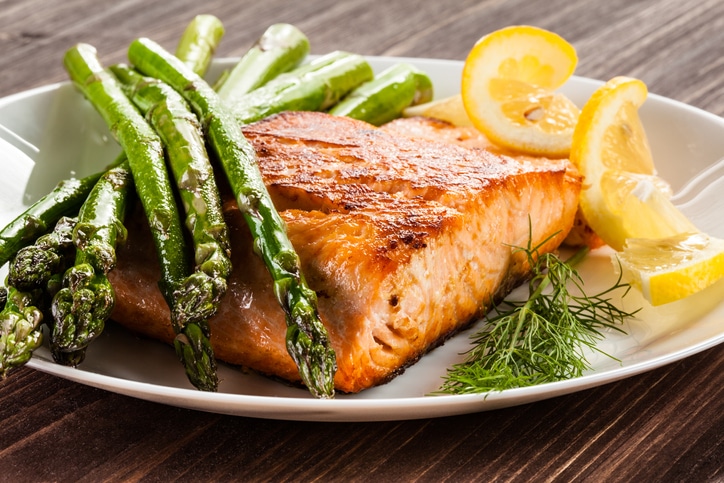Inflammation disorders make millions of lives miserable. Medications often bring some relief, but you may not realize that diet can be every bit as effective.
“Foods that fight inflammation are critical to our health,” says Khadija Kabani, DO, integrative and family medicine specialist on the medical staff at Methodist Charlton Medical Center. “If we can address inflammation, we can treat chronic illnesses, too.”
Among those illnesses caused by chronic inflammation are arthritis, allergies, heart disease, depression, and even cancer and diabetes.
“When I evaluate my patients,” Dr. Kabani adds, “I keep in mind that one condition can have many causes or one cause can lead to many conditions.”
Inflammation serves an invaluable role in protecting the body, most notably during an infection. But chronic diseases arise when this natural reaction rages out of control.
Dietary changes can help quiet that storm.

ANTI-INFLAMMATORY FOODS
Odds are you know many of the foods that help battle inflammation because they’re all good for your general health, too.
- Green leafy vegetables and tomatoes
- Fruits like strawberries, blueberries, and oranges
- Fatty fish like salmon and tuna
- Foods high in Omega-3 fatty acids, including Dr. Kabani’s favorite, chia seeds
Dr. Kabani says eating whole fruits and vegetables can deliver a host of anti-inflammatory benefits.
“Take blueberries, for example,” she says. “They’re full of polyphenol antioxidants called flavonoids whose potential to fight inflammation is phenomenal.”
Add more blueberries to your diet, Dr. Kabani says, and you’ll not only reduce inflammation, but improve memory, reduce the risk of cardiovascular disease, and make your body more sensitive and less resistant to insulin – a must for diabetic patients.
“I have a few superfoods,” she says, “and blueberries are on this list.”

WHAT NOT TO EAT
Many foods trigger inflammation, and anyone who has even dabbled in dieting should be familiar with the biggest offenders.
- Saturated fats like cheese and trans fats like shortening
- White flour and other refined carbs (white rice, sugary cereal, etc.)
- Sodas and other sugary drinks
- Red meat and processed foods like hot dogs
- Omega-6 fatty acids (canola oil and mayonnaise)
- Fried foods of any kind
- Excess salt
Some of these foods are fine in moderation, but excess salt can inflame joints, and too much sugar triggers the release of cytokines, a kind of inflammatory protein. Even artificial sweeteners like aspartame can cause such a response because the body treats them as a toxin.
Similarly, moderate amounts of Omega-6 fatty acids aid normal growth and development, but the typical American diet is very high in this kind of fat. Get too much, and you’re bound to trigger inflammation.
Other foods may trigger inflammatory responses for only certain people. Lactose-intolerant people are allergic to dairy, while gluten causes digestive problems for others.

WEIGHT LOSS
Several diets focus on foods that fight inflammation, most notably the Mediterranean diet, among others.
“The commonality among different anti-inflammatory diets is the focus on fruits, vegetables, and healthy fats,” Dr. Kabani says.
The bottom line: If you can find a healthy eating plan that helps you lose weight, it will be a diet that keeps on giving.
“Losing weight can ease inflammation,” Dr. Kabani says. “Even small amounts of weight loss have greater benefits than you would think.”

WHAT IS INFLAMMATION?
The “cascade of inflammation” is the human body’s natural mechanism when it’s injured. Think of a bruise or swelling when you twist your ankle, or a sore throat when you catch a cold.
When tissue becomes inflamed, white blood cells flood the area to kill off invaders. That increases blood flow, causing redness and warmth (inflammation). The chemical reaction spreads into surrounding areas, irritating the tissue and causing pain.
These are examples of acute, or short-term, inflammation. It’s when this natural mechanism goes haywire that inflammation becomes chronic — and disease is the result.
For example, inflammation of the heart, also known as myocarditis, can cause fatigue and fluid buildup, and ultimately blood clots that lead to strokes or heart attacks.
Diabetes can inflame the kidneys, known as nephritis, and causes kidney failure.
And chronic joint inflammation causes arthritis and gout.

